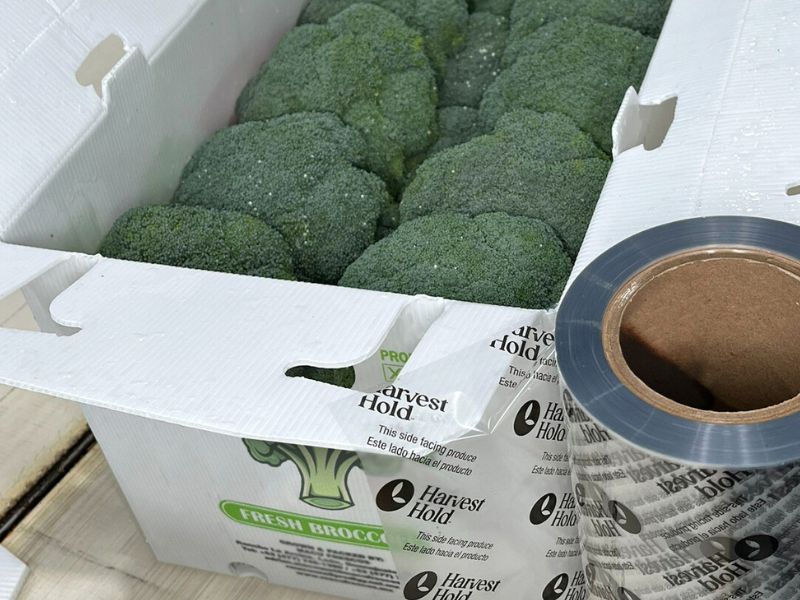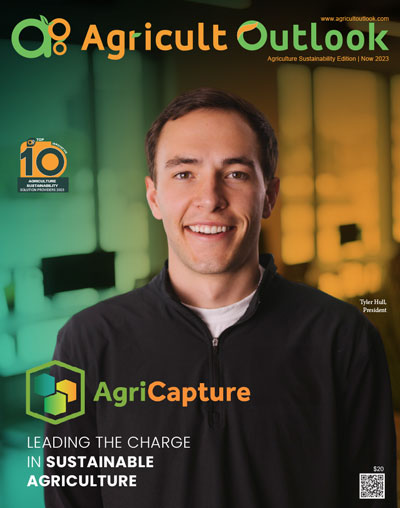Verdant Technologies has officially announced an expansion of its HarvestHold Fresh® product to improve the sustainability and efficiency of the North American broccoli supply chain. In case you weren’t aware, HarvestHold Fresh is an in-box sheet that uses an industry-standard ingredient, widely used in commodities like apples and flowers to extend their freshness and shelf-life. But how does it work from a more practical standpoint? Well, placed immediately into produce boxes after harvest, the product in question is able to slow down ripening and maturation of its load, thus maintaining the product/s’ vitality and taste for longer. Such a setup, markedly enough, eliminates the need for ice during the transport, and therefore, significantly reduces water use and optimizes space. Hence, with both those elements in play, one can not only expect a sustainable method of shelf-life preservation, but alongside that, we can also look to avail an efficient transportation mechanism.
“Our pilot studies have demonstrated HarvestHold Fresh’s transformative impact on the broccoli supply chain,” said Matthew Aronson, Chief Revenue Officer of Verdant Technologies. “Through our collaborative approach with Sobeys and its grower partners, we’ve shown that broccoli transported without ice using HarvestHold Fresh retains its fresh, vibrant green hue and firmness up to a week longer than its ice-shipped counterparts. These findings not only confirm the effectiveness of HarvestHold Fresh, but also set a new benchmark in produce logistics and environmental stewardship.”
To understand the real significance of this technology, though, we must acknowledge how after fruits and vegetables are harvested, they release ethylene, a naturally occurring compound that accelerates the ripening process, eventually leading to over-ripening and spoilage. However, an active ingredient in HarvestHold Fresh blocks ethylene and makes a point to delay that ripening. This enables fruits and vegetables to retain their freshness for significantly longer without facing, of course, any loss to its nutritional value. Furthermore, such a technology brings down the energy and carbon emissions involved in preparing and transporting the given product. Hold on, there is more, considering we haven’t yet touched on one more benefit of going ice-less within the stated context. You see, by removing ice from the equation, Verdant’s technology is able to offer enhanced workplace safety, as there will be no slip and fall risks that usually come to the fore with melted ice. All in all, if we turn our focus back towards broccoli, ditching the traditional shipping approach to adopt this one should help us save up to 13,000 liters of water required per each truckload of broccoli.
Operating out of Centennial Colorado, Verdant Technologies has risen up on the back of its product life extension technology. Alongside that, the company’s case is also, to a larger degree, is helped by those 189 issued or pending patents in its corner, as well as by a team of globally recognized experts in cyclodextrin and 1‑MCP (1‑methylcyclopropene).
“Working with Verdant and partnering in this initiative has enabled us to implement a truly unique farm-to-plate innovation that provides advantages at each stage of the supply chain. We’re excited to see what can happen at a national scale and hope to see it used with other commodities coming into our stores,” said Myriam Tremblay, VP of Produce Merchandise and Sourcing & Replenishment at Sobeys Inc.




